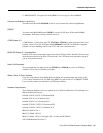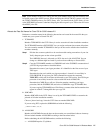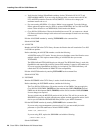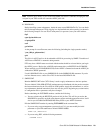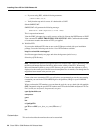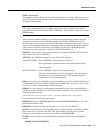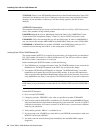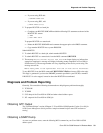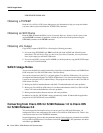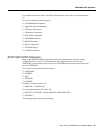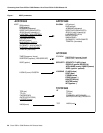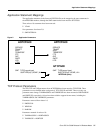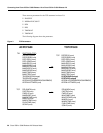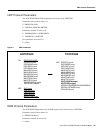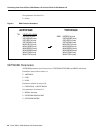
Cisco IOS for S/390 Release 2.0 Release Notes 33
Diagnosis and Problem Reporting
— If you are using JES2 add:
/*JOBPARM LINES=9999
— If you are using JES3, add:
//*MAIN LINES=(999,W)
• To prepare RUNTCP as a batch job:
— Complete your RUNTCP JOBCARD and add the following JCL statements to the end of the
RUNTCP JCL stream:
// PEND
//label EXEC TCPIP
To prepare RUNTCP as a started task:
— Delete the RUNTCP JOBCARD and comments that appear prior to the PROC statement.
— Copy member RUNTCP into a system PROCLIB.
Submit RUNTCP.
• To submit RUNTCP as a batch job, submit member RUNTCP.
• To submit RUNTCP as a started task, issue the MVS command S RUNTCP.
• The message ACC210I Internet Protocol Task Started no longer displays to indicate that
startup has completed. A message will display indicating startup completion in Cisco IOS for
S/390 release 2.0. The message number will vary, depending on the device you are using. The
message text will be
Media media_name is now operational with one or more active interfaces.
To stop RUNTCP, issue the MVS command F RUNTCP,P CLEAR and answer YES to the reply.
This reply is generated if you have the PROMPT parameter specified in your IJTCFGxx member.
If RUNIUCV is to be stopped, it must be done after RUNTCP has terminated.
Diagnosis and Problem Reporting
Generally, Cisco needs the following documentation to help diagnose problems thoroughly:
• TCP SNAP
• TCPEEP
• SVC dump of the Cisco IOS for S/390 and other related address spaces
• JCL output of the Cisco IOS for S/390 job
Obtaining GTF Output
The “Command Scripts” section of Chapter 2, “Cisco IOS for S/390 Operation” in the Cisco IOS for
S/390 System Management Guide provides a sample command script to start GTF and turn on
tracing.
Obtaining a SNAP Dump
As soon as a problem occurs, enter the following MVS command to your Cisco IOS for S/390
address space:



